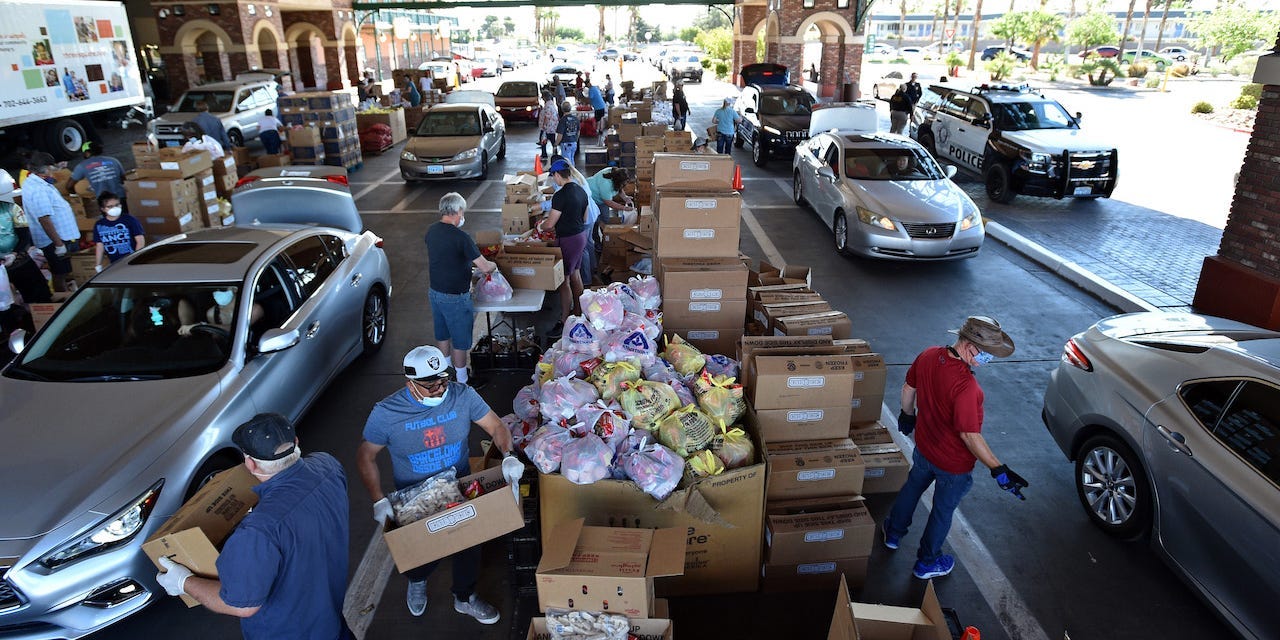
DAVID BECKER/Getty Images
- About 12 million Americans could lose necessary jobless benefits one day after Christmas if Congress doesn’t reach a deal and pass a new stimulus during the lame duck session.
- Some 7.3 million gig and self-employed workers are relying on Pandemic Unemployment Assistance and 4.6 million people whose initial unemployment aid has expired are relying on Pandemic Emergency Unemployment Compensation.
- Lawmakers don’t appear anywhere close to reaching an agreement on a new relief package despite the looming deadlines and negotiators for the Democrats and Republicans haven’t met since before Election Day.
- Visit Business Insider’s homepage for more stories.
Nearly 12 million Americans could lose crucial unemployment benefits on December 26 if Congress doesn’t reach a deal and pass a new coronavirus stimulus during the ongoing lame duck session, according to a new Century Foundation report.
The report found that 7.3 million gig and self-employed workers relying on Pandemic Unemployment Assistance and 4.6 million people relying on Pandemic Emergency Unemployment Compensation, which extends unemployment aid after regular assistance expires, stand to lose all the help they’re receiving. Congress passed both forms of aid in March as part of the $2 trillion CARES Act.
Economists have been raising alarms about the impending disaster for months as lawmakers have failed to reach a deal. They’re warning that Congress’ failure to pass a new relief package will have severe and long-term impacts on American families and the health of the US economy.
A temporary national ban on evictions also ends on December 31, which could plunge the most vulnerable Americans into even more desperate situations. Like the health impacts of COVID-19, unemployment is disproportionately impacting Black and brown Americans.
Andrew Stettner, an unemployment researcher and co-author of the Century report, told The Washington Post that the country is “careening into this huge cliff” and lawmakers are ignoring the emergency.
"People are just totally, completely ignoring the situation at a time when things are getting worse before they're going to get better in terms of public health," he said.
This comes after the $600 federal unemployment aid Congress passed in March expired on July 31.
A total of 21.1 million Americans are currently receiving unemployment aid as COVID-19 continues to spike across the country. As of Wednesday, 11.4 million Americans have been infected by the coronavirus and almost 249,000 people have died of the disease, according to Johns Hopkins University. Cases and hospitalizations are surging across the country even as millions plan to travel and visit family and friends for the holidays.
Republicans and Democrats are at odds over the scale of aid needed in a new stimulus. While the Democratic-controlled House has suggested passing two additional stimulus bills, which would have each sent $3 trillion and $2.2 trillion into the economy, Republicans have proposed just $500 billion in new spending. Congress is facing another deadline — this one on December 11 — to pass a spending bill in order to prevent the federal government from shutting down.
However, negotiators for the two parties haven't met since before Election Day and lawmakers don't appear anywhere close to making a deal despite the impending deadlines.

